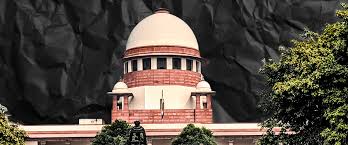CASE COMMENTARY ON A K GOPALAN VS STATE OF MADRAS
Author – SEELU HARINI, STUDENT AT ICFAI LAW SCHOOL HYDERABAD
Best Citation – SEELU HARINI, CASE COMMENTARY ON A K GOPALAN VS STATE OF MADRAS, Voice of Freedom and Rights, 1 (1) of 2023, Pg. 82-85, ISBN – 978-81-961120-1-1
ABSTRACT
The AK Gopalan case was a significant case in Indian constitutional law that addressed the applicability and interpretation of Article 21 of the Constitution. As a result of the Preventive Detention Act of 1950, a communist leader named AK Gopalan was imprisoned. His incarceration, he claimed, violated his fundamental rights, which are guaranteed by Article 21 of the Constitution and include the right to life and personal liberty.
The AK Gopalan case established the idea that the Constitution did not guarantee absolute rights and that constraints on these rights could be imposed in the interests of the State. It also established the idea that the phrase “procedure established by law” indicated that any law that deprives a person of their fundamental rights had to be a legitimate law, but not necessarily a good or fair law.
According to the Supreme Court’s decision, the phrase “procedure established by law” in Article 21 suggested that a person’s personal freedom might be violated by law that was properly adopted, even if it was capricious or unjust. Furthermore, the Court found that preventive detention was a reasonable restriction on these rights in the interests of public safety and national security, and that Article 21’s guarantee of the right to life and personal liberty was not absolute.
KEY WORDS: Constitution, Fundamental Right, Legitimate, Supreme Court, Capricious, Life, Personal Liberty.
